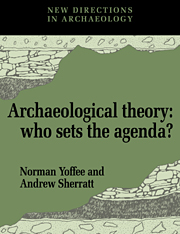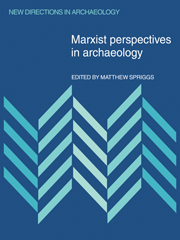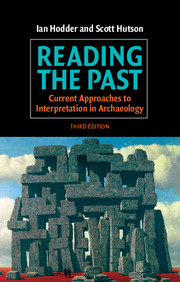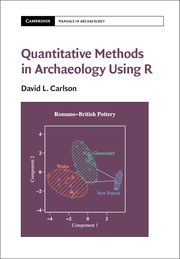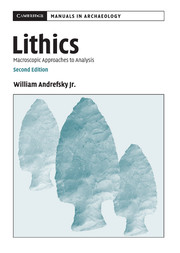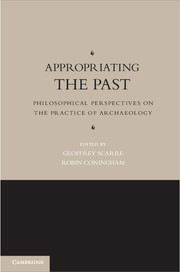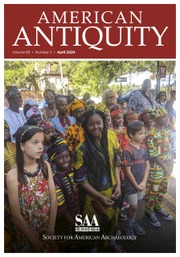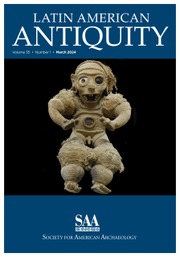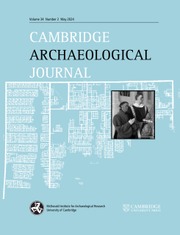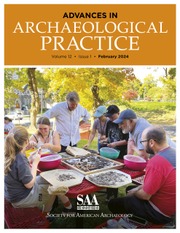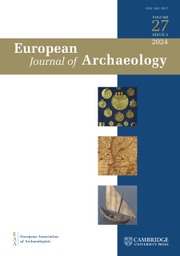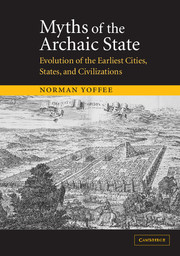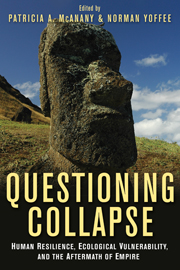Archaeological Theory
Who Sets the Agenda?
Part of New Directions in Archaeology
- Editors:
- Norman Yoffee, University of Michigan, Ann Arbor
- Andrew Sherratt, University of Oxford
- Date Published: March 2011
- availability: This ISBN is for an eBook version which is distributed on our behalf by a third party.
- format: Adobe eBook Reader
- isbn: 9780511882661
Find out more about Cambridge eBooks
Adobe eBook Reader
Other available formats:
Paperback
Looking for an inspection copy?
This title is not currently available for inspection. However, if you are interested in the title for your course we can consider offering an inspection copy. To register your interest please contact [email protected] providing details of the course you are teaching.
-
This volume assesses the real achievements of archaeology in increasing an understanding of the past. Without rejecting the insights either of traditional or more recent approaches, it considers the issues raised in current claims and controversies about what is appropriate theory for archaeology. The first section looks at the process of theory building and at the sources of the ideas employed. The following studies examine questions such as the interplay between expectation and evidence in ideas of human origins, social role and material practice in the formation of the archaeological record, and how the rise of states should be conceptualised; further papers cover issues of ethnoarchaeology, visual symbols, and conflicting claims to ownership of the past. The conclusion is that archaeologists need to be equally wary of naive positivism in the guise of scientific procedure, and of speculation about the unrecorded intentions of prehistoric actors.
Read more- One of the only state-of-the art critiques on current trends in archaeology
- A timely, controversial collection which should arouse much interest
- Professionally recognised contributors, and edited by two members of the series board
Reviews & endorsements
'I recommend this provocative volume, in which I found much to think about, not least Sherratt's plea that archaeologists - not the media, tour managers or politicians - should be the ones who set the agenda.' Nick Saunders, New Scientist
Customer reviews
Not yet reviewed
Be the first to review
Review was not posted due to profanity
×Product details
- Date Published: March 2011
- format: Adobe eBook Reader
- isbn: 9780511882661
- contains: 14 b/w illus.
- availability: This ISBN is for an eBook version which is distributed on our behalf by a third party.
Table of Contents
Introduction: The sources of archaeological theory Norman Yoffee, and Andrew Sherratt
Part I. The Social Context of Archaeological Theory:
1. Limits to a post-processual archaeology (or The dangers of a new scholasticism) Philip L. Kohl
2. A proliferation of new archaeologists 'Beyond objectivism and relativism' Alison Wylie
3. Ambition, deference, discrepancy, consumption
the intellectual background to a post-processual archaeology Christopher Chippendale
Part II. Archaeological Theory from the Paleolithic to the State:
4. Ancestors and agendas Clive Gamble
5. After social evolution: a new archaeological agenda? Stephen Shennan
6. Too many chiefs? (or, Safe texts for the 90s) Norman Yoffee
Part III. Case-Studies in Archaeological Theory and Practice
7. When is a symbol archaeologically meaningful? Meaning, function and prehistoric visual arts Kelley Hays
8. Re-fitting the 'cracked and broken facade': the case for empiricism in post-processual ethnoarchaeology Miriam Start
9. Communication and the importance of disciplinary communities: who owns the past? Tim Murray
Part IV. Postscript and Epilogue:
10. The relativity of theory Andrew Sherratt
11. Archaeology: the loss of nerve Richard Bradley.
Sorry, this resource is locked
Please register or sign in to request access. If you are having problems accessing these resources please email [email protected]
Register Sign in» Proceed
You are now leaving the Cambridge University Press website. Your eBook purchase and download will be completed by our partner www.ebooks.com. Please see the permission section of the www.ebooks.com catalogue page for details of the print & copy limits on our eBooks.
Continue ×Are you sure you want to delete your account?
This cannot be undone.
Thank you for your feedback which will help us improve our service.
If you requested a response, we will make sure to get back to you shortly.
×
